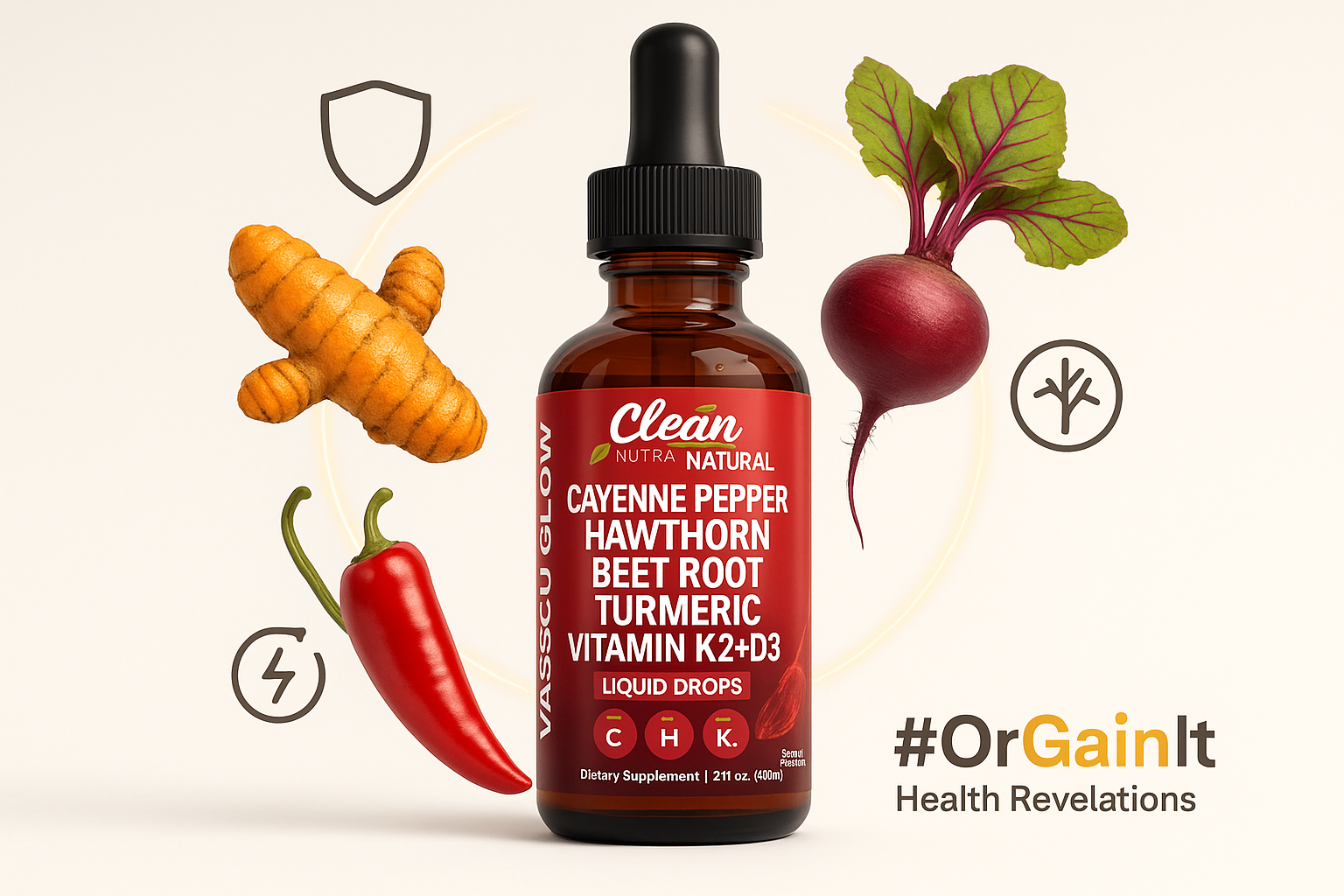Turmeric And Digestive Health: Keeping Your Gut Happy And Healthy
Turmeric, that vibrant golden spice you might’ve seen in your local grocery store, has been stealing the spotlight in the health world recently. It’s more than just a pop of color in your curry; it’s being hailed as a gut health champion. Why, you ask? It all boils down to its remarkable anti-inflammatory and antioxidant properties, thanks to its powerhouse component, curcumin.
Keeping your insides running smoothly is vital to a happy, healthy life. Your gut isn’t just where food gets processed—it’s a key player in your overall wellbeing, impacting everything from your immune system to even your mood. So, protecting this mighty system really matters.
So what’s on the menu today? We’re diving into why turmeric might be just what you’ve been missing in your digestible arsenal. From understanding your gut’s mechanics to how turmeric can potentially calm your tummy troubles, we’re covering it all. Stick around because we’re gonna spice up your gut health knowledge, quite literally!
Understanding the Digestive System
Our digestive system is like the unsung hero of our body, working day and night to keep us fueled and feeling good. It’s a complex network, stretching from our mouth to, well, the end of the line. It breaks down food, absorbs nutrients, and says goodbye to what we don’t need.
Each part of the digestive system—from the stomach to the intestines—has a special job. The stomach is like your own personal cement mixer, breaking down food with acids and enzymes. Your intestines then take over, sucking up all those precious nutrients.
But what happens when things aren’t running smoothly? Issues like bloating, heartburn, or more serious conditions like IBS can really throw a wrench in the works. And that’s where our friend turmeric might step in to help out, offering a natural element to help soothe these common digestive woes.
Turmeric is thought to support digestion by reducing inflammation and helping maintain a balance of good gut bacteria. While it won’t replace medical treatments for serious conditions, it can complement your health routine. It’s part of taking care of your gut and keeping everything in happy harmony.
The Active Ingredient: Curcumin
Curcumin is where turmeric gets its superpowers. This compound is what gives turmeric its bright color and its impressive health perks.
Curcumin’s been getting a lot of love for being a potent anti-inflammatory and antioxidant. This means it fights off free radicals and reduces inflammation, two things that can help your digestive system stay in tip-top shape.
Inflammation is a big deal when it comes to digestion. It can lead to discomfort and long-term issues if left unchecked. So curcumin stepping in as a natural anti-inflammatory is a big win.
Curcumin also features prominently in studies showing potential improvements in digestive conditions. It’s been noted for helping calm things like indigestion or the irritations caused by IBS.
However, it’s not just what curcumin does, but how well your body can access it. Its bioavailability is key, which means how well it’s absorbed into your bloodstream. Pairing it with black pepper or fats can boost its absorption, making it more effective.
Exploring and integrating curcumin into your diet offers a natural way to potentially enhance your digestive wellbeing. It’s like nature’s little helper, whispering reassurance to your gut.
Turmeric’s Role in Alleviating Digestive Disorders
Turmeric is gaining attention for its potential to ease digestive troubles, backed by scientific research that’s pretty darn promising. Multiple studies suggest that this golden spice can aid in managing conditions like IBS (Irritable Bowel Syndrome) and ulcerative colitis by reducing inflammation and calming gut spasms.
For those wrestling with IBS, some research hints that turmeric might help lessen symptoms like abdominal pain and bowel irregularities. It’s believed that the anti-inflammatory properties of curcumin can help soothe the irritated gut lining, offering relief to those who struggle daily with discomfort.
In the case of ulcerative colitis, known for causing inflammation and ulcers in the digestive tract, turmeric’s potential as a complementary therapy is being explored. Some studies suggest that it may work well alongside conventional treatments, possibly helping to maintain remission in some patients.
Hearing from those who’ve walked the path offers valuable insights. Many people experimenting with turmeric report noticeable improvements in their digestive health, sharing stories of reduced bloating and improved regularity.
While science is still piecing together the puzzle, the recurring theme seems to be that turmeric, when added responsibly to your diet, might provide welcome assistance in managing and potentially improving digestive disorders. It’s a natural option worth exploring, keeping in mind to consult with a healthcare provider to tailor it to individual needs.
How to Incorporate Turmeric into Your Diet
Making turmeric a part of your daily routine doesn’t have to be complicated or time-consuming. Whether you fancy yourself a kitchen whiz or you’re more of a take-out enthusiast, there are plenty of ways to enjoy this vibrant spice.
One simple way is adding turmeric to your cooking. Throw a pinch into soups, stews, or even scrambled eggs for an earthy twist. If you’re into smoothies, toss in a little turmeric with some black pepper and coconut milk for a nutritious kick.
Another convenient option is turmeric tea or what’s sometimes known as golden milk. It’s as cozy as it sounds! Mix turmeric with warm milk (dairy or non-dairy), add a touch of honey, and sprinkle a bit of cinnamon for a soothing, gut-friendly drink.
If cooking isn’t your jam, turmeric supplements are available in most health stores. Remember to read labels to ensure they contain curcumin and possibly piperine, an extract of black pepper that boosts absorption.
As for how much to take, the general guideline for turmeric powder is about 500 milligrams of curcumin per day. But keep in mind, supplements vary, and it’s best to talk to a healthcare provider to get the dose right for you.
Whatever method you choose, combining turmeric with a little fat or black pepper can increase bioavailability, helping your body make the most out of this golden gem. Enjoy experimenting and see how turmeric fits into your lifestyle!
Potential Side Effects and Precautions
While turmeric is generally safe for most people, it’s important to be aware that too much of a good thing can have its downsides. Overconsumption might lead to stomach upset, nausea, or even dizziness, especially if taken in excess via supplements.
Those with certain health conditions should be extra cautious. For instance, if you have gallbladder issues or are pregnant, turmeric might not be the best choice. It can interact with some medications, including blood thinners, so consulting a healthcare professional is key before making any big changes.
Pay close attention to how your body reacts to turmeric. Start slow, especially if you’re new to it, and see how well you tolerate it. If any adverse effects pop up, it’s wise to pause and seek medical advice.
Remember, while turmeric can support digestive health, it’s not a cure-all. It should complement a balanced diet and a healthy lifestyle, not replace medications or treatments prescribed by your doctor. Each person’s body is different, and personalizing your health journey is important.
Integrative Approaches: Combating Digestive Issues Holistically
Beyond turmeric, embracing a holistic approach to digestive health can bring about long-lasting benefits. This means looking at the bigger picture and combining various natural remedies and lifestyle changes.
Pairing turmeric with other digestive-friendly herbs like ginger and peppermint can be beneficial. Ginger is known for its ability to calm nausea, while peppermint may ease pain and bloating—together with turmeric, they create a powerhouse trio for soothing the gut.
Diet plays a crucial role too; fiber-rich foods and probiotics help maintain a healthy balance in your gut flora. Fresh fruits, vegetables, and fermented foods like yogurt and kimchi can support an environment where good bacteria thrive.
Exercise isn’t just about building muscles or losing weight—it’s also a key player in promoting digestive health. Regular physical activity helps keep things moving through your digestive tract, reducing the risk of constipation and overall improving digestion.
Mindfulness and stress management might seem unrelated, but since stress can exacerbate digestive issues, practices like yoga, meditation, or even just deep breathing can support gut health. Stress management techniques can work hand-in-hand with nutritional choices to promote a harmonious digestive experience.
Bringing these elements together, from what you eat to how you manage stress, paints a complete picture of wellness. Turmeric can be a valuable piece of the puzzle, but it shines brightest when part of a balanced lifestyle that supports your digestive health from all angles.
Conclusion: Embracing Turmeric for a Healthier Gut
Incorporating turmeric into your routine can be a simple yet powerful step toward supporting your digestive health. This golden spice, with its mighty curcumin content, offers natural advantages that help balance and soothe your gut.
Don’t forget that incorporating turmeric isn’t about replacing medical advice or treatment but about complementing your current lifestyle with something extra that nature offers. Paired with a diet rich in diverse, nutritious foods and mindful lifestyle habits, turmeric can be a valuable ally in maintaining digestive harmony.
Embarking on this path means tuning into your body’s needs, listening to its signals, and tweaking your intake based on what works best for you. It’s about taking charge and exploring what makes your gut happiest, one turmeric spice blend or cup of golden milk at a time.
Here’s to a happier gut and embracing nature’s ways to keep things moving in the right direction!





